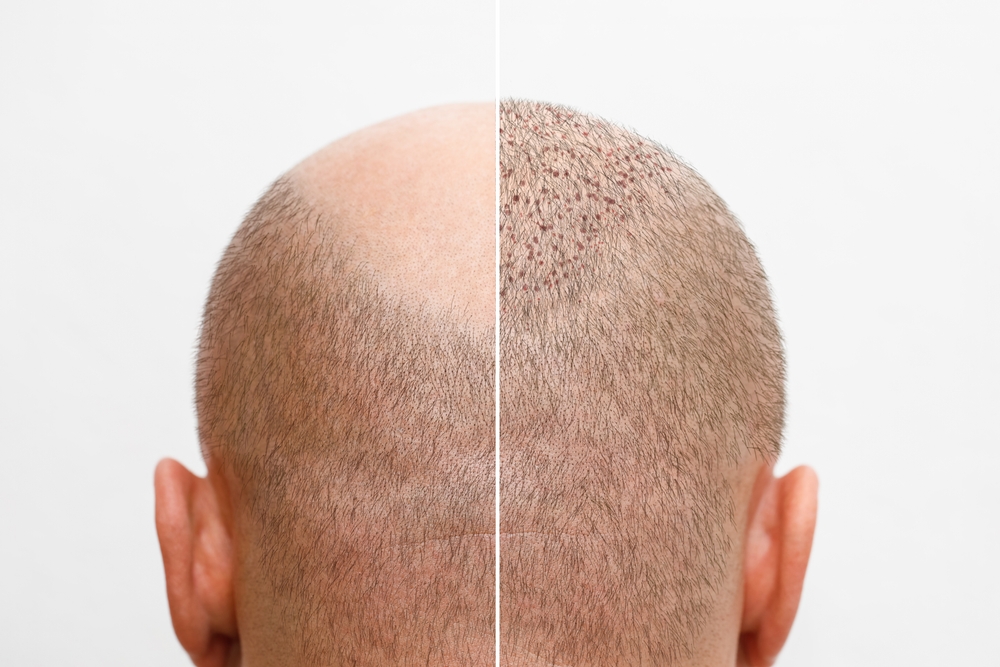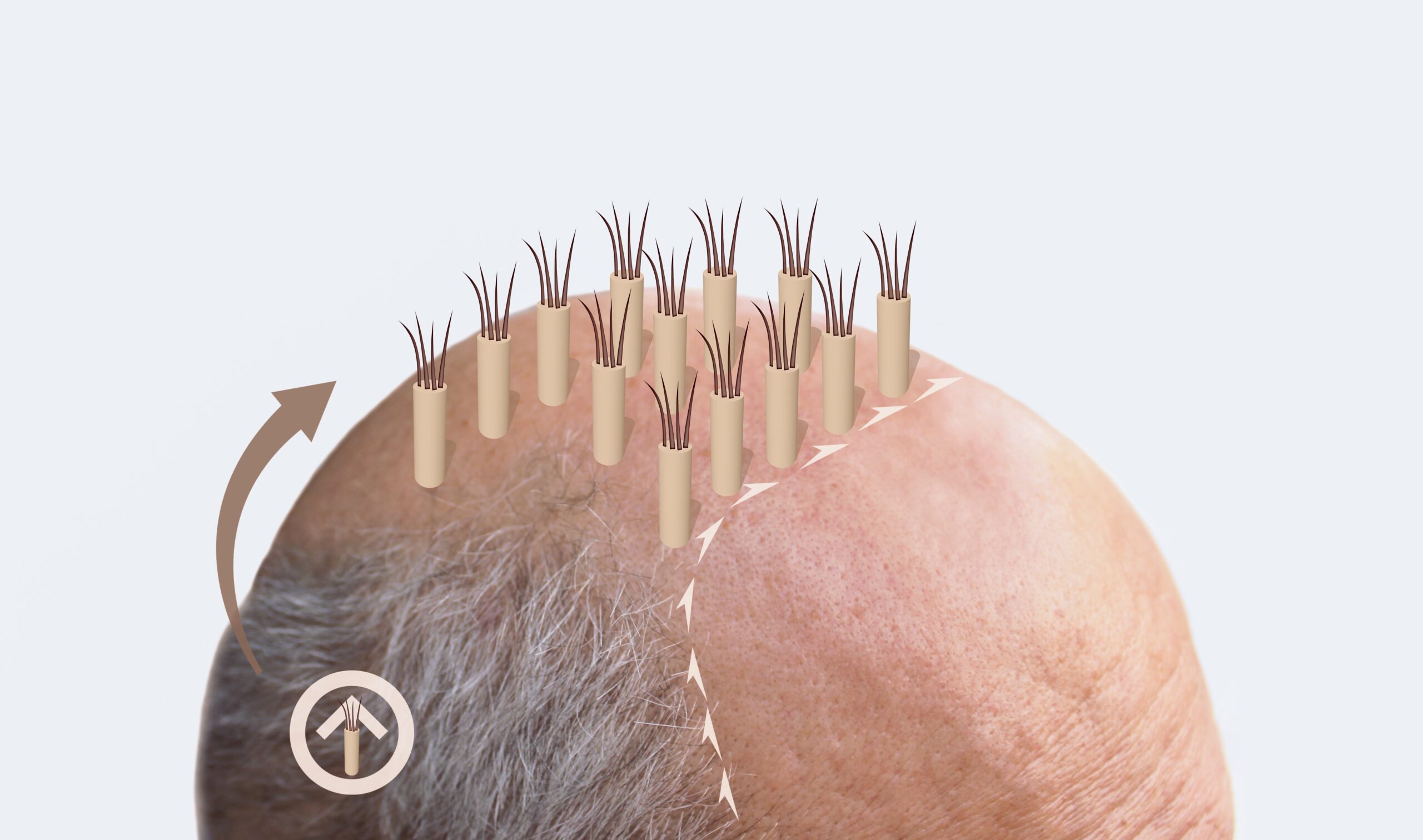A poor candidate for a hair transplant is someone who may not achieve satisfactory results from the procedure or may face potential complications. You and your surgeon need to evaluate various factors to determine if a hair transplant is suitable for you.
Here are some characteristics of individuals who may not be ideal candidates for a hair transplant…
- Insufficient donor hair – Hair transplants involve taking hair follicles from one area (usually the back or sides of the head) and transplanting them to the thinning or balding areas. If a person does not have enough healthy donor hair, the procedure may not be feasible or may result in unnatural-looking results.
- Young age – Hair loss tends to be progressive, and undergoing a hair transplant at a young age may not be recommended because it can be challenging to predict the extent and pattern of future hair loss. The patient may require multiple surgeries as hair loss continues, which can lead to unnatural-looking hairlines and scarring.
- Unrealistic expectations – Patients who expect immediate, dense, or perfectly natural-looking results may not be suitable candidates. Hair transplant outcomes require time to grow and may not always meet unrealistic expectations.
- Active medical conditions – Individuals with certain medical conditions, such as uncontrolled diabetes, blood clotting disorders, or autoimmune diseases, may not be suitable candidates for hair transplants. These conditions can increase the risk of complications during and after the procedure.
- Scalp issues – Scalp conditions like psoriasis, dermatitis, or active infections can affect the success of a hair transplant. These conditions should be resolved or managed before considering the procedure.
- Smoking and alcohol consumption – Smoking and excessive alcohol consumption can impair the body’s ability to heal and may increase the risk of complications. Surgeons may advise patients to quit these habits before surgery.
- Unrealistic expectations: Patients who expect immediate, dense, or perfectly natural-looking results may not be suitable candidates. Hair transplant outcomes require time to grow and may not always meet unrealistic expectations.
- Psychological concerns: – Individuals with psychological issues, including body dysmorphic disorder or unrealistic fixation on appearance, should consult with mental health professionals before considering a hair transplant. Addressing these concerns is essential for a successful outcome.
- Ongoing hair loss medications – Some medications used to treat hair loss, like finasteride and minoxidil, can slow down or stabilize hair loss. Patients may need to continue using these medications after a hair transplant to maintain results. If a patient is unwilling or unable to use these medications, it can affect the success of the transplant.
Individuals interested in a hair transplant to have a thorough consultation with a qualified and experienced surgeon who can your candidacy based on individual factors. Alternative treatments or therapies may be recommended instead of or in conjunction with a hair transplant.




